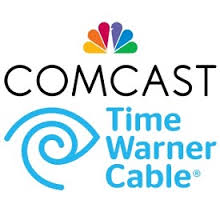Does Comcast-TWC Delay Spell Doom?
The smarter way to stay on top of the multichannel video marketplace. Sign up below.
You are now subscribed
Your newsletter sign-up was successful

WASHINGTON — Should investors fear anything about Comcast and Time Warner Cable’s agreement to extend the end date of their merger agreement by six months, to Aug. 12?
The short answer is that the deal isn’t imploding — but keep watching.
The companies had initially told the Securities & Exchange Commission they thought the deal — a $67 million stock-and-debt deal to combine the No. 1 and No. 2 U.S. cable operators — would be completed by the end of 2014 (actually by Feb. 12, 2015, a year from its announcement). As is standard, though, the agreement also anticipated that an extension might be necessary considering neither company controls the government-vetting timetable.
It’s little wonder there have been innumerable delays, given the vetting process by the FCC and the Justice Department in Washington, as well as a court challenge to the agency’s protective order on making program contracts public.
Were Comcast, the No. 1 U.S. cable operator with 22.4 million video customers as of third-quarter 2014, to prevail in acquiring Time Warner Cable, the No. 2 MSO with 10.8 million video subscribers, the resulting company would have about 29.3 million video households, following a series of system swaps, sales and spins that would put it below 30% of total U.S. MVPD households.
The FCC has an informal 180-day shot clock” on the deal; the vetting process is only at day 122. But that “clock” dates from when the merger papers were filed — which did not occur until April 2014 — and has been stopped twice due to document-production issues.
The initial end date was Feb. 12, a date that would have given either party an out if they did not want to continue the deal. Neither opted for that out.
The smarter way to stay on top of the multichannel video marketplace. Sign up below.
The FCC is not expected to make a decision on the deal until late spring or early summer because of the protective order court challenge. The U.S. Court of Appeals for the D.C. Circuit is scheduled on Feb. 20 to hear oral arguments on a challenge to an FCC decision to allow some 200 third parties to review contracts and “work product” related to the Comcast-TWC merger, as well as telco AT&T’s proposed acquisition of satellite-TV provider DirecTV.
According to an attorney involved, the court isn’t expected to rule until April on the challenge brought by such programmers as CBS, Time Warner Inc., 21st Century Fox, Viacom and Univision Communications, who claimed the FCC’s move was unprecedented and that the agency failed to consider less-intrusive ways to make the contract information available. The programmers successfully sought a stay of that decision in federal court.
If the ruling on the documents goes against the FCC, it could act on the merger soon afterwards. But if the court allows those third parties access — as the agency wants — it will need to open a window for viewing and comment. In that case, the attorney said, a decision on the merger could push into the summer.
Financial analysts still expect the deal to be approved, likely with conditions related to high-speed broadband and nondiscriminatory access to programming, though the odds of it passing muster have lowered a bit.
“We’re at 70%, down from 80% previously,” Craig Moffett, principal and lead analyst at MoffettNathanson, said.
Contributing editor John Eggerton has been an editor and/or writer on media regulation, legislation and policy for over four decades, including covering the FCC, FTC, Congress, the major media trade associations, and the federal courts. In addition to Multichannel News and Broadcasting + Cable, his work has appeared in Radio World, TV Technology, TV Fax, This Week in Consumer Electronics, Variety and the Encyclopedia Britannica.

